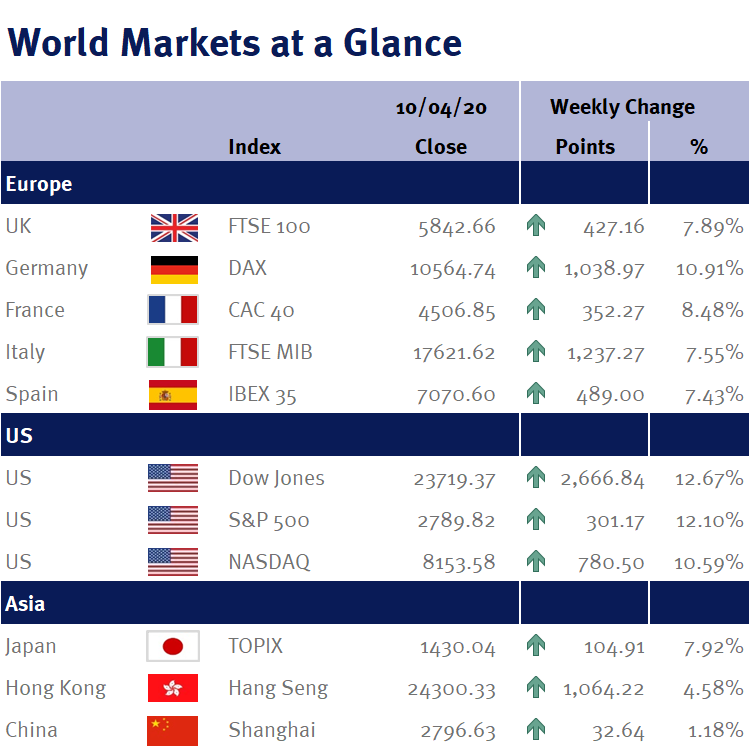Global equity markets closed lower today (Friday 3 April 2020), resulting in weekly declines: the FTSE-100 ended the week down 1.72%, while in the US the S&P 500 finished the week 2.08% lower.
Today’s US non-farm payroll report would normally be our main focus but as the survey period excluded the last two weeks of March it had little meaning.
Although the report showed the US economy lost 701,000 jobs in March (the most since March 2009), taking the unemployment rate to 4.4%, it essentially told us nothing about how the US economy looks today given the increasing number of states ordering people to stay at home to contain the coronavirus outbreak, resulting in businesses temporarily closing, coupled with the fact, as we reported yesterday (please see here), the number of Americans applying for unemployment benefit had risen by nearly 10m in the past two weeks.
While it is obvious that backward looking global economic data will continue to get much worse, the stimulus measures that governments and central banks have provided, should mean that the global recession that we are clearly heading towards will be short and sharp, rather than severe or protracted.
For example, in the UK, under the “Coronavirus Job Retention Scheme”, employers can furlough employees – which allows employers to claim 80 per cent of furloughed employees’ wages up to £2,500 per month, which will alleviate much of the financial pain.
Simply put, it is better for an employee to earn 80% of their income, than be made redundant because the employer has no work for the employee due to the coronavirus outbreak.
Although the US hasn’t introduced such a policy, hourly paid employees can apply (and clearly are applying) for unemployment benefit for their income, rather than retaining a job with no hours and therefore no pay.
However, in these uncertain times, there is one thing that is certain and that is, this is not like a normal economic downturn as the coronavirus outbreak is a transient issue.
As such, when the current lockdowns are lifted and we all start consuming again (i.e. we go back out to the shops; eat out in restaurants; and go on holiday), there will be a “V-shaped” global economic recovery and as a result we will undoubtedly see record job gains!
The question is, how long will the lockdowns last, and therefore what will the economic loss be between now and the recovery?
However, given the speed and magnitude of the recent equity market falls, we believe that equity markets have now priced the worst case scenario (i.e. a severe and protracted economic downturn), which means for long-term investors such as ourselves, there are plenty of opportunities – especially given the fact that once this horrible outbreak is contained, companies will be operating in a world full of cheap input costs (thanks to the lower oil price), coupled with a looser labour market (and therefore subdued wage growth) and an accommodating monetary policy.
Looking ahead to this coming week, the main focus will once again be on the US jobless claims after this week’s record 6.65m claims.
Additionally, on Wednesday (8 April 2020), the Fed releases the minutes from its unscheduled meeting on 15 March 2020, when they cut US interest rates to 0.25%, and the following day we have the University of Michigan’s preliminary consumer sentiment index.
We will also be looking at the minutes from the ECB (European Central Bank) for clues on future policy changes and stimulus measures.
Unfortunately, in the UK the data will largely cover the period before the coronavirus outbreak hit, for example, we have GDP, Industrial Production and Manufacturing Production data for February.
Investment Management Team


